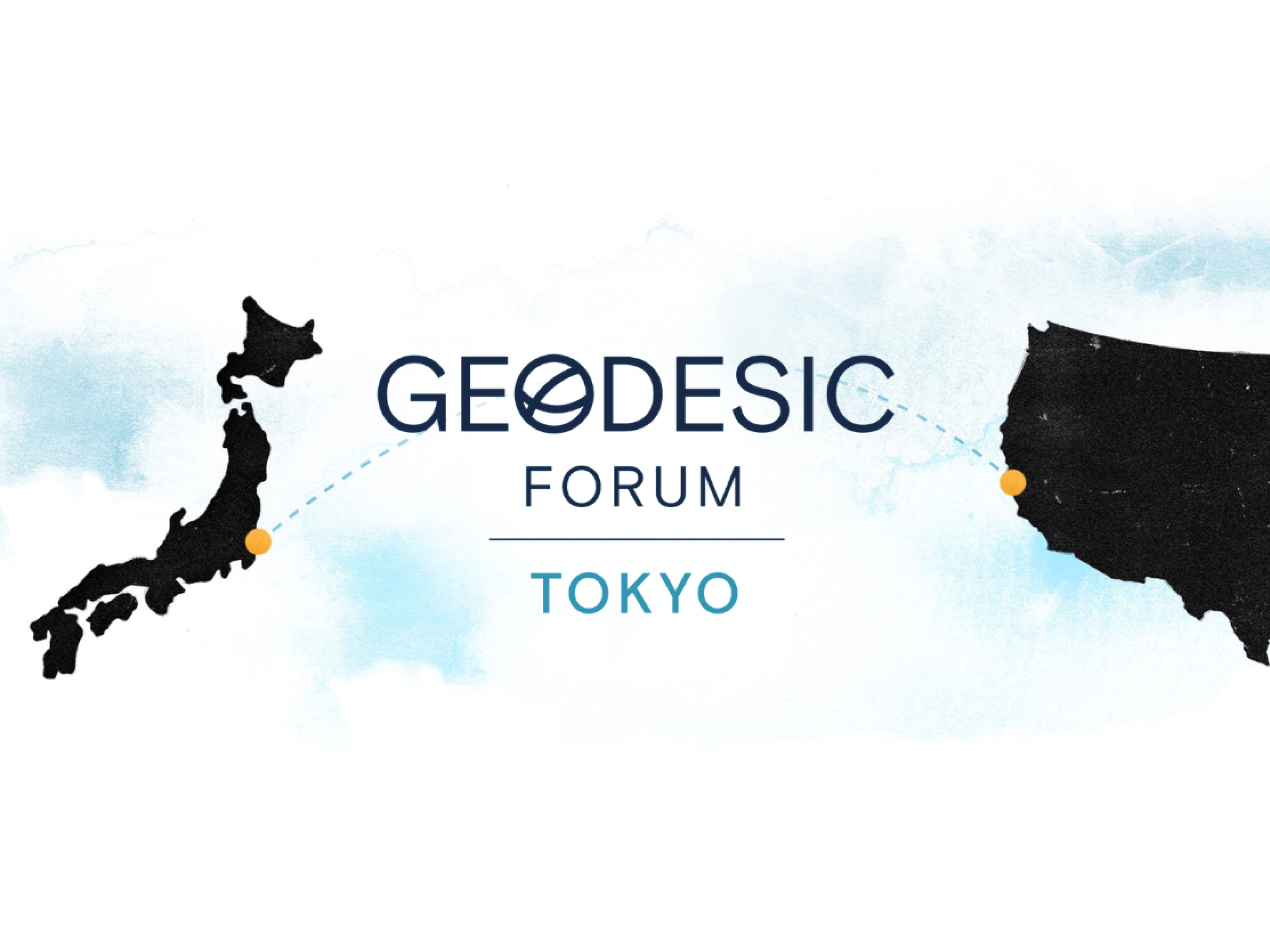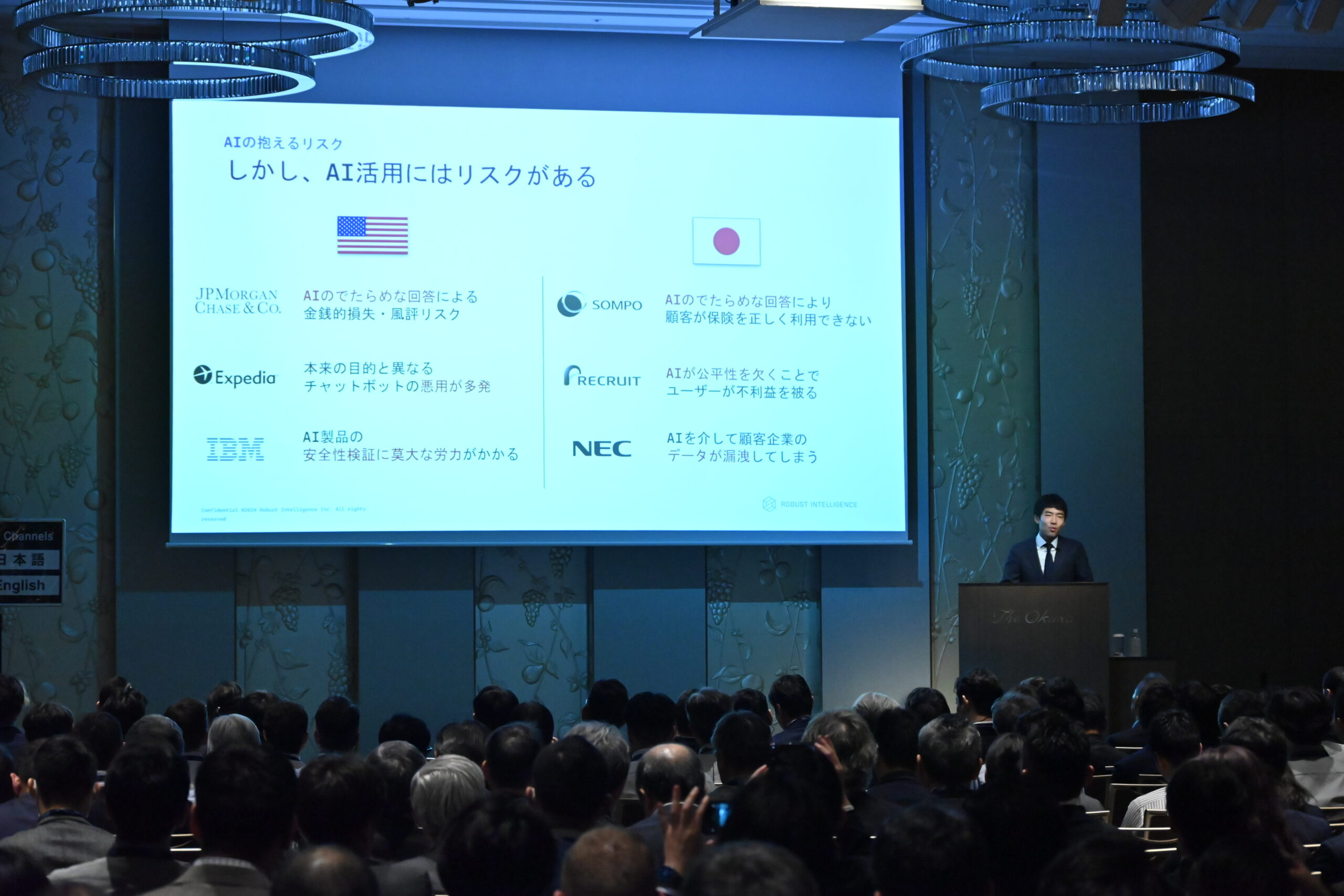Geodesic Forum 2024: a Reflection of Historic Changes and the Innovations Powering Growth in Japan
Written byMarcus Otsuji

People often say that in Japan there is not much change. But today in 2024 Japan is full of significant even historic change. And not only change, but it seems that for the first time since the bursting of the economic bubble 30 years ago there is clarity – clarity regarding the direction of the country, and priorities regarding Japan’s place in the global order, economically, technically and geopolitically. We witnessed these changes, this clarity and the great energy they are bringing to Japan during our annual conference Geodesic Forum 2024 held in Tokyo at the historic Okura Hotel from February 19 – 21, but before we get into what happened at Forum, let’s step back and take a look at a few examples of the notable changes we’re seeing in Japan.
What’s Happening in Japan
While obviously not an exhaustive list, each of the changes/events/achievements below represents a clear signal from government, private industry and consumers alike regarding Japan’s strategic areas of interest and investment.
- National security: in December 2022 PM Kishida announced plans to double national security-related spending by 2027 from 1% to 2% of GDP. This is not only an increase in spending, but more importantly, signals a massive shift in geopolitical policy from a mostly defensive posture to one where Japan will be much more proactive in defending its borders from more modern threats from increasingly aggressive neighboring regimes.
- Space: On Jan 20, 2024 JAXA (Japan Aerospace Exploration Agency) successfully landed a spacecraft on the moon for the first time becoming only the 5th country to do so after the US, Russia, China and India. In an era when space is becoming critical for communications, intelligence gathering and national security, the importance of this accomplishment and what it means more broadly for Japan’s space program cannot be overstated.
- Nuclear power: on February 28, 2023 the Japan Cabinet approved the GX Decarbonization Power Supply Bill which among other things codifies PM Kishida’s support for nuclear power by officially extending the legal operating period of nuclear power plants from the current 40 years, to up to 60 years. Despite significant public opposition to nuclear power following the Fukushima power plant accident in 2011, this policy shift was seen as necessary to secure Japan’s energy needs which have been increasingly threatened by recent geopolitical instability in regions Japan relies on for fossil fuels.
- Semiconductor manufacturing: on February 24, 2024 TSMC opened their first, and announced plans for a second, large-scale semiconductor manufacturing plant in Kumamoto Japan. This partnership with Sony, Toyota and Denso is being funded heavily by the Japanese government as a key pillar to both secure domestic supply for semiconductors and to position Japan as a major exporter of chips as well.
- AI research: In the world of startups, renowned AI researchers from Google Mind (David Hu and Llion Jones) chose Tokyo as the home of their new generative AI research startup (Sakana.ai) to focus on developing Asian language first generative AI models. In January 2024 they announced the closing of their $30M seed round, which we participated in alongside lead investors Lux Capital and Khosla Ventures, as well as that they were chosen by METI to be one of seven research institutions to be granted special access to a super computing cluster to train their models.
- Generative AI adoption: in April 2023 OpenAI CEO Sam Altman made Japan his first overseas trip and met with PM Kishida, business and technology leaders and the press, signaling OpenAI’s intent to invest in Japan and Japanese language capabilities on the model based on the strong adoption of ChatGPT from Japanese consumers and businesses.
It goes without saying in the list above I left out Japan’s traditional areas of strength (manufacturing, automotive, industrial robotics, high end electronics, chemicals, and other deep tech industries) which form the backbone of the Japanese economy. But layered on top of those areas of traditional strength, we see Japan now taking a more proactive posture in the emerging areas listed above which represent both existential risks but also incredible opportunities. From all layers of the generative AI value chain (semiconductors, foundation models and AI applications) to energy security, to aerospace and national defense, Japan is aggressively asserting its economic and technological might to forge a path that will protect its national interests and take the country forward through its next phase of growth.
Just as important as what Japan is doing, is perhaps the way they continue to partner with outside firms and individuals to bring about these changes. From TSMC’s involvement in semiconductor manufacturing, to Sakana.ai’s non-Japanese co-founders, to PM Kishida’s visit with Sam Altman, Japan continues to open its doors to partners who can help bring about their vision for the future.
Geodesic Forum 2024
In August of last year (2023) as we began planning for Forum, we had the feeling that we needed to do something different in reflection of all the changes outlined above. We knew it would, as always, be very much about IT and in particular AI, but this year it would need to be so much more. We broadened the scope of topics we typically cover at Forum and what resulted was the most diverse lineup of startups we’ve had:
- DX: Of course we started with an amazing core group of B2B software startups: Cohere (Canada), Pendo (North Carolina), Sakana.ai (Tokyo) and Robust Intelligence, Merge, Cortex, Thoughtspot, Vercel and Nile (all from California.)
- National defense: We also welcomed, for the first time, defense tech companies: Saronic (autonomous surface vehicles, Texas), Chaos (next-generation radar technology, Los Angeles) and Emesent (autonomous mapping solutions, Australia). After AI, defense tech is perhaps the hottest sector in Silicon Valley.
- Energy transformation: Finally we were extremely honored to have Bob Mumgaard, Founder and CEO of Commonwealth Fusion Systems, which has raised $2B from top energy investors to commercialize nuclear fusion based on leading research spun out of MIT.
Over the three days we were together in Tokyo we facilitated over 100 one-on-one meetings with leading Japanese industrial giants, financial institutions and government agencies. We hosted over 400 technology and business leaders at the Tech Conference held at the Okura Hotel and were honored to have Tokyo Governor Yuriko Koike join us at the US Ambassador’s Residence reception hosted by Ambassador Rahm Emanuel where roughly 200 executives from Japan and Silicon Valley gathered. Here are some pictures and a quick summary of the various activities and events:
The Tech Conference (Monday, February 19th)

Geodesic Capital Founder and General Partner former US Ambassador to Japan John Roos shared his thoughts on the state of the US-Japan alliance.

Nick Frosst co-founder of generative AI startup Cohere (backed by Oracle, Salesforce, Nvidia, Index Ventures and others) helped us understand how their enterprise-focused solutions overcome hallucinations, inaccuracies doing even simple math calculations and other limitations of current LLMs.

Dino Mavrookas, CEO of Saronic, showcased their autonomous surface vessels and how they will be used to provide support and intelligence to naval and maritime forces. Saronic is a reminder that the biggest trend in national defense is autonomous systems as we’re seeing in real-time with the use of drones in the Ukraine – Russian war.

Commonwealth Fusion Systems (CFS) Founder and CEO Bob Mumgaard described CFS’s path to limitless clean energy via their planned ARC nuclear fusion power plant and its prototype predecessor (SPARC) which is being built in the suburbs of Boston.

Co-founder of Silicon Valley-based Robust Intelligence, Kojin Oshiba (a Japanese native), spoke about artificial intelligence security and risk management.

David Ha, CEO and co-founder of Tokyo-based AI research startup Sakana.ai introduced concepts such as nature-inspired AI and evolutionary computation as the next frontier of generative AI research.

Conversations with new and old friends at the networking reception following the Tech Conference.

Executives from Silicon Valley gathered to learn about Japanese economic, demographic and societal trends from renowned economist Jesper Koll.

The US Ambassador’s residence reception hosted by Ambassador Rahm Emanuel, where messages of optimism and support were shared regarding the US-Japan alliance from Ambassador Emanuel, Ambassador John Roos and Tokyo Governor Yuriko Koike.

Winning in Japan I and II (February 19 and 21): between two Winning in Japan sessions, Silicon Valley entrepreneurs were able to hear directly from operators building significant businesses in Japan including Tadao Nagasaki (former President at AWS Japan), Akira Shibata (Country Manager at Weights & Biases Japan and Korea), and Allan Teng (Vice President & General Manager at Wokato Japan). These three business leaders shared best practices and lessons they’ve learned regarding Japanese business culture, Japan GTM considerations, product localization, support and community building among other topics. Geodesic Senior Advisor James Kondo and Geodesic Japan Country Manager Marcus Otsuji (me) lead these sessions.
Lesson Learned
Alignment: throughout the three days of Forum we were reminded that one of the reasons the Japan – US alliance has endured for so long is because of the tight alignment in core values and strategic direction that our nations share. While both the US and Japan stand for democracy and capitalism, Japan represents a uniquely Asian democracy and market economy and is therefore a beacon and inspiration to other countries in the region with similar values and aspirations. Japan’s economic strength and geopolitical influence are pillars of peace and a bulwark against aggression. These values form the core of the US – Japan alliance.
Synergies: Economically the US and Japan also share an incredibly synergistic relationship. Although we compete in many industries, Japan’s deep tech and manufacturing-based economy is a critical part of the global supply chain as Japanese companies provide inputs into major manufacturing companies around the globe including core enabling technologies. For enterprise software however, Japan has mostly looked to leading foreign vendors (many from the US) making Japan the second largest market for B2B software in the world. Japanese companies have been and continue to invest aggressively in digital transformation spurred on this past year by generative AI. We have heard loud and clear from our friends in Japan that artificial intelligence is a top priority and they are looking to partner with companies (domestic or foreign) that can help them achieve their AI ambitions.
Ongoing innovation: in Silicon Valley hundreds of startups are formed each day. At Geodesic we meet with thousands of entrepreneurs, investors, business leaders and thought leaders, each year searching for those with truly compelling technologies and ideas that might be of value to Japan. We have been doing this now for eight years and are excited to deepen our engagements in digital transformation while we explore new sectors such as space, manufacturing, supply chain, energy, national security and other sectors that contribute to the US-Japan alliance. There are so many areas of potential collaboration between the US and Japan. The best way to learn what is happening in Silicon Valley is to meet with and speak directly to Silicon Valley entrepreneurs. Once a year at Geodesic Forum we bring these CEOs and entrepreneurs to Japan to provide our partners and our community with this opportunity. Throughout the year we expect more innovation, change and disruption and we look forward to continuing to provide our Japanese partners with targeted information and introductions to support new partnerships that will strengthen both individual businesses and the US – Japan alliance for countless years to come.

